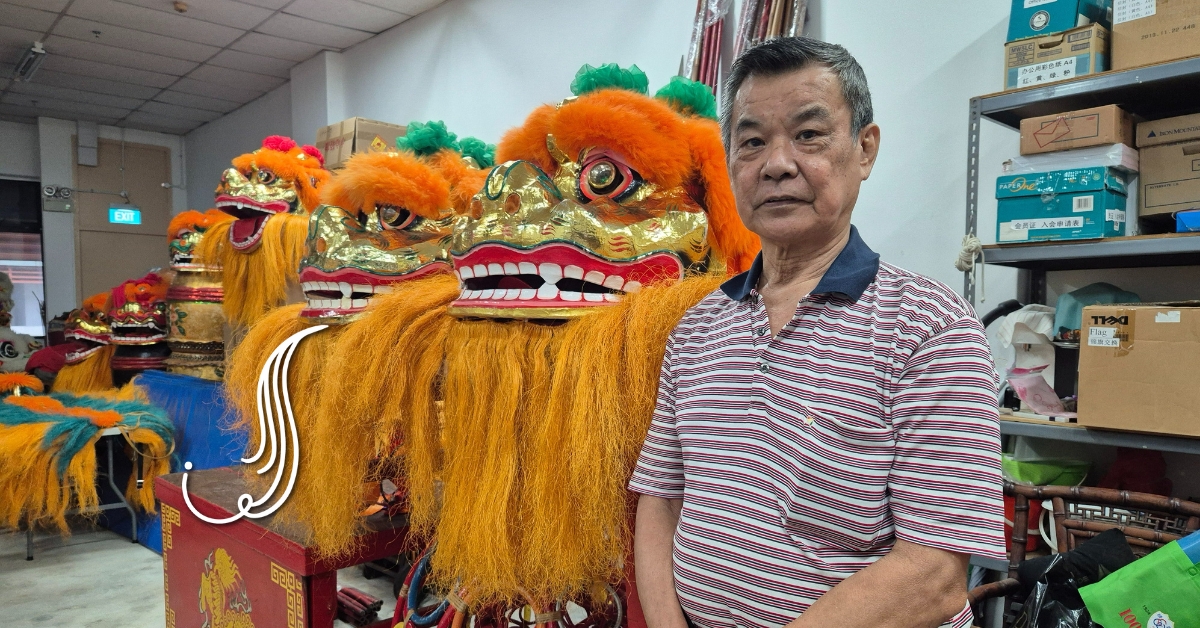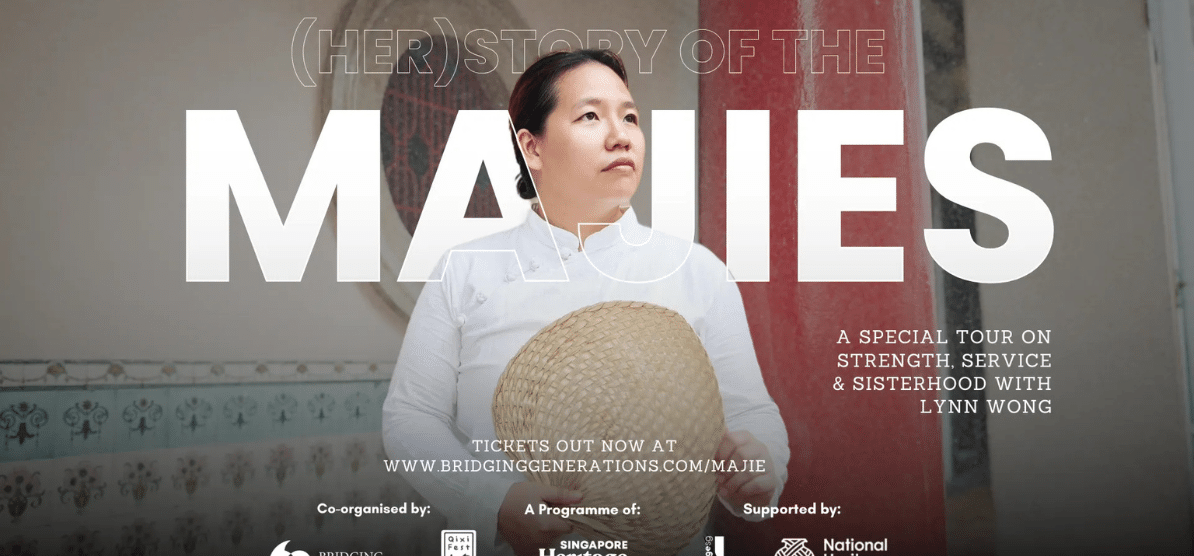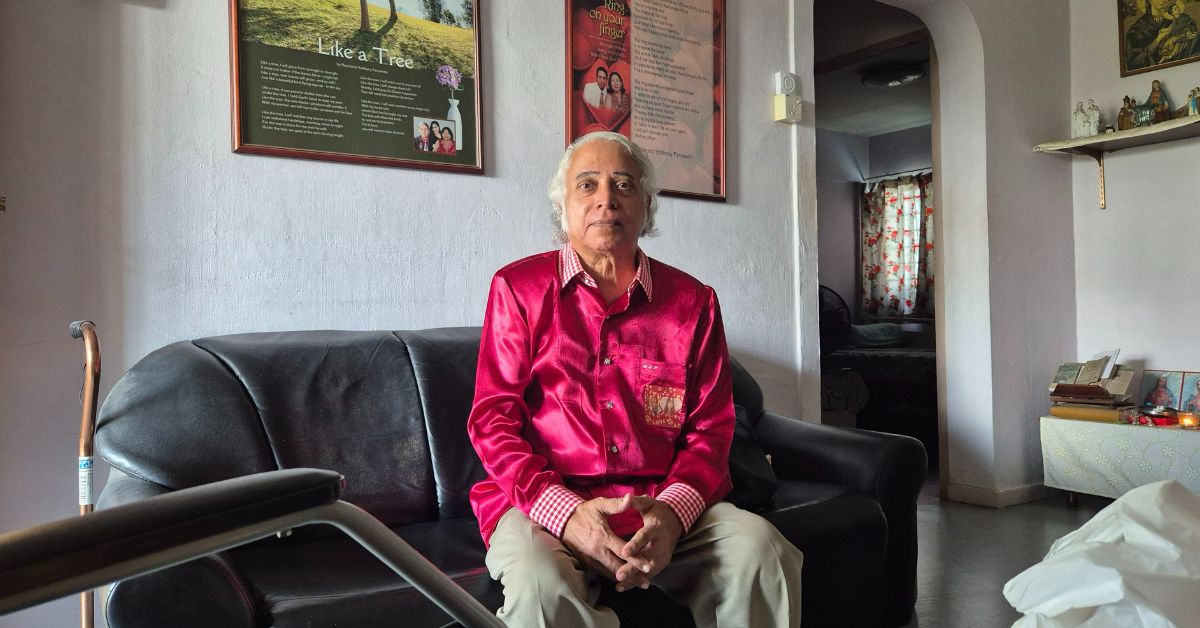
For forty years, Singaporean silver Raymond Anthony Fernando stood by his wife Doris Lau’s side, acting as a steadfast companion, loving husband and doting caregiver before she passed away suddenly from a bout of pneumonia in 2013.
She had schizophrenia – a major psychotic disorder characterised by significant impairments in the way reality is perceived, resulting in abnormal thinking or behaviour. This manifests in symptoms like hallucinations, delusions, social withdrawal and apathy, all of which can significant hinder daily life, work and relationships.
Her mental illness was not something that developed out of the blue during the couple’s decades-long marriage. Rather, it was something that the late Doris had long lived with, and something that her now-74-year-old husband was aware of from as early as date number three.
They met in the ’70s. Raymond was working in the Singapore Broadcasting Corporation (SBC, later corporatised to Media Corporation of Singapore, then Mediacorp) in a public-facing administrative role, while Doris was a stenographer. He made the first move, penning a letter to her after she appeared in Her World magazine.
They quickly upgraded from pen pals to meeting in person. Says Raymond fondly, “For our first date, we met at the Satay Club for a simple meal. The next time, we went to the Capitol Theatre to catch a movie. By the third date, she told me.”
Advertisement
Raymond Fernando: "Caregiving is a solo job"
It was no simple confession, as mental illnesses were heavily stigmatised then. Even now, people with major psychotic disorders like schizophrenia see a great deal of prejudice from strangers and friends alike.
Many of Doris’ ex-boyfriends took her revelation as a cue to leave. Raymond took it as a sign to ask for her hand in marriage.
To me, love is about accepting people for what they are, without being judgemental. It can happen between anyone, even if they are of different races, or social statuses. We must be blind to all of these and love them for the person.
He explains,
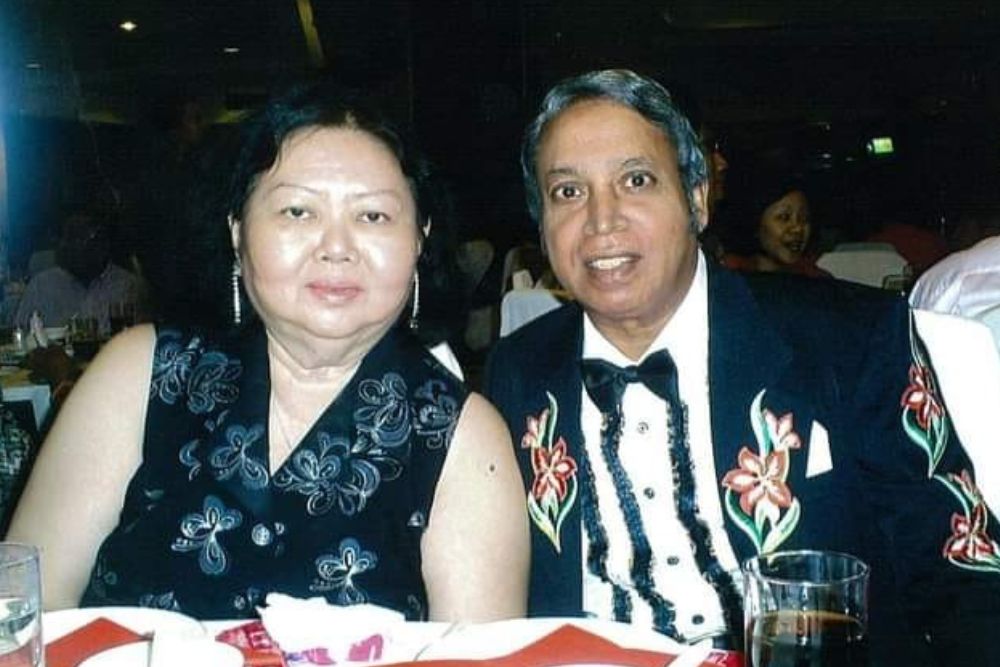
The couple were wed by 1974. Both continued to work full-time at first, as Doris’ symptoms had largely stabilised under her psychiatrist’s supervision.
It's only bad when she relapses – she relapsed 12 times over the forty years, and every time she relapsed, she would stay in IMH (the Institute for Mental Health) for a longer period,
he says.
According to Raymond, her illness was usually brought on by various environmental stressors. Their rocky finances, exacerbated by the cost of medication and treatment, was a major point of pressure. The death of Doris’ mother also dealt a huge blow to her mental health, as the two were “extremely close”.
The symptoms that manifested ranged from “intense jealousy” – “I worked long hours at SBC, and that led to her imagining that there was some other woman”, says Raymond – and insomnia to dark, depressive moods, headaches and delusions.
I participated in some caregiver support groups, and I quickly realised that all of us felt very much alone. Despite what people might say, caregiving is a solo job. One person will end up taking on most of it, and the stress will keep building,
adds the silver.
Raymond Fernando championing mental health in later life
That mounting stress led Raymond to attempt suicide in 1995. Thankfully, he didn’t succeed.
It was as God planned it, I think,
says the devout Catholic.
"If I had went first, who could’ve taken care of her?"
The silver ended up quitting his job in 2009 to care for Doris, who by then had developed arthritis and required a strict daily regimen of 52 pills.
When she's in one of her moods, she'd tend to toss her pills rather than take them, so I wanted to make sure that she was adhering to her medicine,
he says.
"To continue to make ends meet, I took up writing."
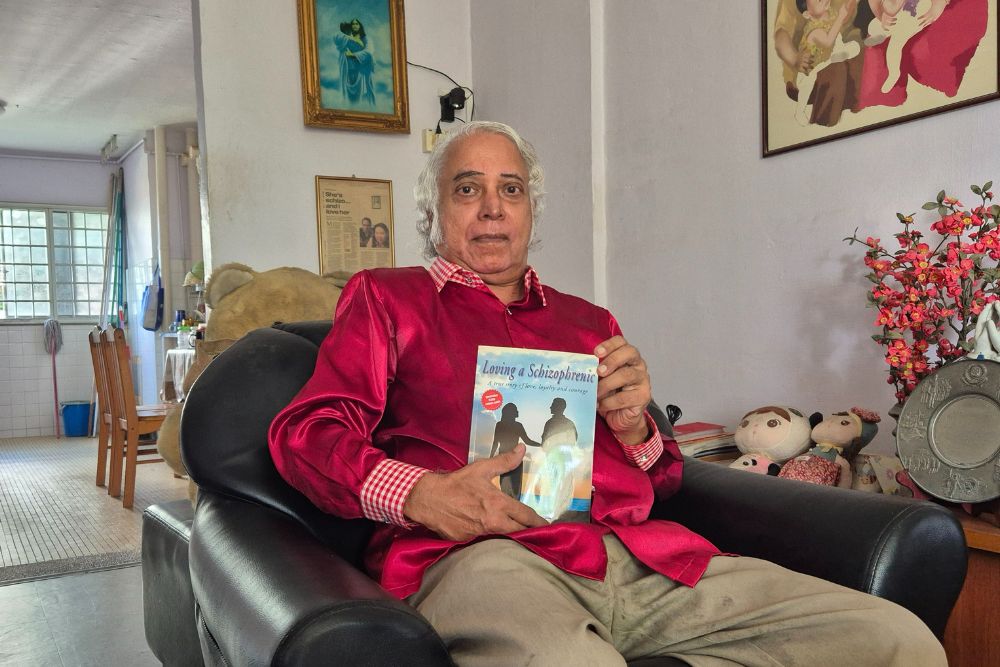
He chronicled their story in Loving a Schizophrenic, which sold well enough to spur him into publishing 10 more books. He encouraged his wife to do the same.
She was a great cook. She’d learned some recipes from my Eurasian mother, and I told her to put it down into a cookbook. After some encouragement, she finally did it – and then she went on to author more books too,
he says.
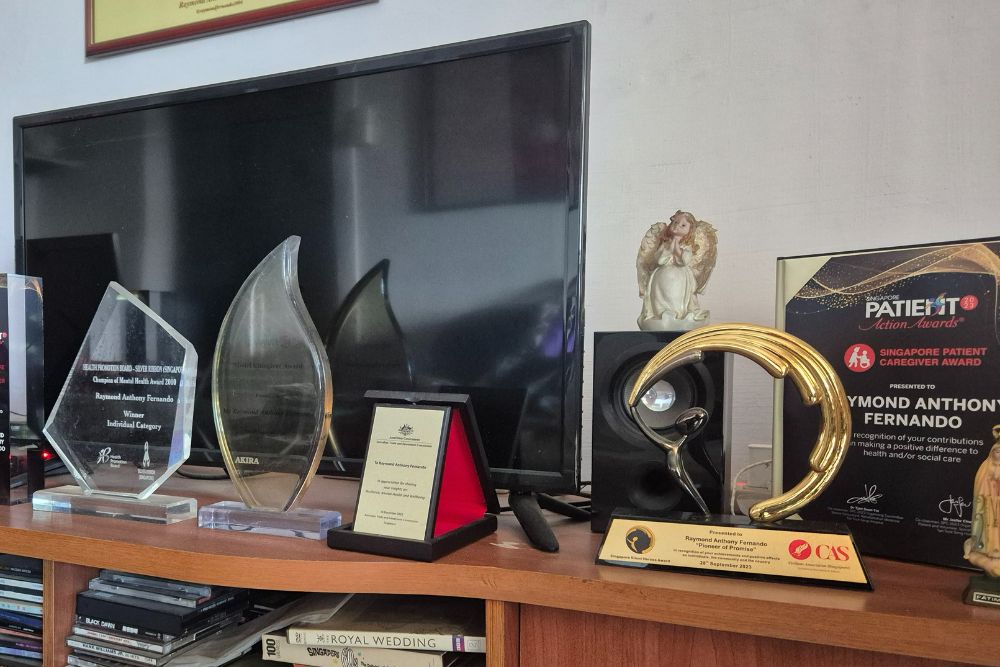
That experience of helping Doris to “overcome self-doubt due to her mental illness” continues to drive Raymond today in his advocacy for caregivers and mental health.
It’s also earned him recognition in the local media and plaudits like the Pioneer of Promise award at the annual Singapore Silent Heroes Award ceremony 2023 by non-profit organisation Civilians Association (Singapore) and Model Caregiver Award by Asian Women’s Welfare Association, among others.
Raymond Fernando's advice for caregivers
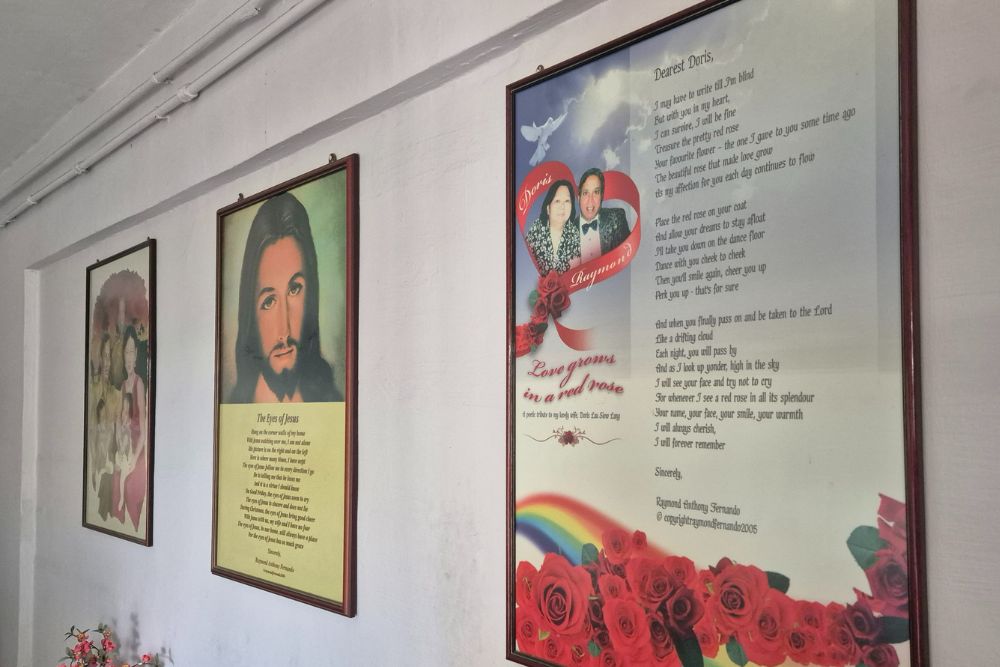
But the senior says that awards and recognition are not why he continues in his advocacy late into his golden years.
We need to talk more about mental health. It’s still a taboo topic today. It is heartening at least to see that the Prime Minister has acknowledged that it is now on the national agenda,
he says.
We know that Singapore is an ageing population. There will be more people that need caregiving and more caregivers with every passing day,
adds Raymond.
Indeed, he sees similarities between caring for people with mental illnesses and those with ailments like dementia.
For both, caregivers must exercise the utmost patience as people are acting unlike themselves. That's why it's such a difficult job,
he says.
"You need to separate the person from the illness, and that’s not easy."
The silver advises those on their own caregiving journey to build up a network of trusted friends and family who can help them with “purchasing necessities or running errands”.
But there's only so much you can impose on other people before they get tired of it. I hope that the government will support caregivers with an allowance or respite services that help ease some of the burden – even something as simple as delivering cooked food a few times a week can make the process easier,
he adds.


